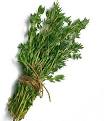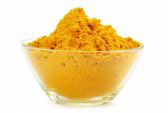Herbs and spices are not only good for adding flavour to foods but they can also protect you from diseases, clear toxins from your body and provide you with vitamins and minerals. One of the most common ways to take medicinal herbs and spices is in tea but by adding a spread of herbs and spices to your everyday diet you can strengthen your immune system and protect yourself from degenerative diseases such as diabetes, arthritis and cancer, enabling you to live a long and healthy life. They should be an integral part of your cuisine. In fact, herbs and spices are one of the oldest forms of medicine known but are regarded nowadays as “alternative medicine”, despite the fact that many modern drugs used in mainstream medicine contain compounds that come from plants.
Medicine from herbs and spices can be used in many different ways, capsules, tablets, poultices, creams and of course, as food when cooking. Herbs and spices have been used for thousands of years to help preserve foods and protect them from microbial contamination. They are some of the top antioxidant foods containing a wide variety of antioxidants.
Allspice
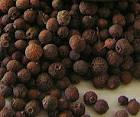 Also known as pimento or Jamaican allspice this is a very potent antioxidant and derives its name from the fact that it carries the flavour of many other spices like cloves, cinnamon and a few others. It should not, however, be confused with mixed spice which is, as the name states, a mixture of different spices. Allspice has anti-inflammatory, anti-flatuent and carminative properties. Like cloves, allspice contains eugenol which has a local antiseptic and anesthetic properties. Eugenol is also a popular home remedy for arthritis and sore muscles and can be used as a poultice or in hot baths. Allspice is also rich in potassium, manganese, selenium, magnesium, iron and copper and vitamins A, B6 and C. A word of warning, however, you should not use allspice if you suffer from stomach ulcers, ulcerative colitis and diverticulitis.
Also known as pimento or Jamaican allspice this is a very potent antioxidant and derives its name from the fact that it carries the flavour of many other spices like cloves, cinnamon and a few others. It should not, however, be confused with mixed spice which is, as the name states, a mixture of different spices. Allspice has anti-inflammatory, anti-flatuent and carminative properties. Like cloves, allspice contains eugenol which has a local antiseptic and anesthetic properties. Eugenol is also a popular home remedy for arthritis and sore muscles and can be used as a poultice or in hot baths. Allspice is also rich in potassium, manganese, selenium, magnesium, iron and copper and vitamins A, B6 and C. A word of warning, however, you should not use allspice if you suffer from stomach ulcers, ulcerative colitis and diverticulitis.
Recent research has shown that a preparation made from allspice oil mixed with garlic and oregano can work against E.coli, salmonella and L.monocytogenes infection. When using allspice for culinary purposes you should always buy the whole seeds and grind them just before preparing dishes and adding them at the last minute to prevent the essential oil from evaporating. Another report from the University of Miami researchers (13.05.2014) stated that pimento caused a 55% reduction in prostate tumour growth and also caused prostate cancer cells to self destruct.
Black Pepper
Many of us see black pepper as a simple condiment that sits on dining tables with its companion salt and is used periodically, to add a little bite to whatever we are eating at the time. Black pepper is much more than that. It has substantial health benefits. Black pepper is rich in antioxidants, helps to control blood pressure and heart rate due to its potassium content, it is full of iron, which helps to keep blood cells healthy, it is also rich in vitamins A and C and carotenes which work to help the body fight cancer and other diseases. The digestive benefits of black pepper are caused by its stimulation of the taste buds which in turn increases the amount of hydrochloric acid in the stomach. This increase in acid decreases the amount of gas thus reducing a particularly embarrassing side effect. It also prevents constipation and heartburn.
Piperine, the active compound in black pepper increases metabolism which in turn increases the number of calories the body can burn, leading to weight loss. Piperine also increases the body’s ability to absorb other nutrients such as vitamin B and beta-carotene and is exceptionally good for improving circulation. Black pepper also helps with water retention through urination and sweating. A tea made with black pepper, lemon and a little honey may also reduce co ughs. Black pepper also contains vitamins A and K. Vitamin A (retinol) is beneficial to the prostate gland and also to the eyesight whilst vitamin K is responsible for blood clotting so that you do not bleed to death if you get cut. Pregnant women should not use large amounts of black pepper as it may cause a miscarriage.
Cayenne Pepper
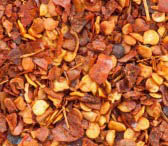
Cayenne pepper, also known as cayanne pepper is said to have several health benefits including the ability to kill prostate cancer cells. It increases metabolism and has a tremendously positive effect on the circulatory system, helping to adjust blood pressure to normal levels. It is also said to clean the arteries, reduce LDL “bad” cholesterol and triglycerides. It also assists with the assimilation of foods and nutrients and the elimination of waste matter.
One of the most important benefits of cayenne pepper has to do with heart health. Apparently a teaspoon of cayenne pepper in a glass of water, taken daily, has an extremely positive effect on the heart. Recent research suggests that cayenne may also boost the immune system and help reduce varicose veins. Capsaicin, the main compound in cayenne pepper is also reputedly very effective in the treatment of tonsillitis, paralysis, dyspepsia and sea sickness.
Cinnamon

Cinnamon is one of the oldest known spices and is particularly high in antioxidants. It is said that one teaspoonful of cinnamon has as much antioxidant capacity as a full cup of pomegranate juice or half a cup of blueberries and none of the sugar.
Cinnamon is also rich in natural compounds called polyphenols which appear to mimic the action of insulin in your body and may help to regulate blood sugar levels. Good news for those who suffer from diabetes. Half a teaspoonful a day, taken in any form, either in tea, coffee or with porridge is regarded as sufficient to help with the removal of fats from the cells of your body, so that they can be better energized by insulin. There are several other benefits which are attributed to cinnamon including the lowering of LDL “bad” cholesterol, the reduction of leukemia/lymphoma cancer cells, anti- clotting effect on blood, when added to honey may relieve arthritic pain, the inhibition of bacterial growth, making it a natural food preservative and it has also been suggested that even smelling cinnamon may boost cognitive function and memory.
Cinnamon is a great source of manganese, fibre, iron and calcium.
Cloves
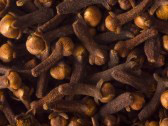 A powerful little dried flower bud which packs a big punch. The main compound, eugenol, has analgesic (numbing) properties and is used for the treatment of many dental problems like toothache. Eugenol also contains anti-bacterial properties and is used in various toothpastes, mouth washes, dental creams and throat sprays.
A powerful little dried flower bud which packs a big punch. The main compound, eugenol, has analgesic (numbing) properties and is used for the treatment of many dental problems like toothache. Eugenol also contains anti-bacterial properties and is used in various toothpastes, mouth washes, dental creams and throat sprays.
Due to their very high content of flavonoids cloves are also used as an anti-inflammatory agent and some aromatherapists use pure clove oil to soothe respiratory conditions like asthma, colds, coughs, sinusitis and bronchitis.
Cloves are said to be very effective in curing many digestive problems and they have been used to treat flatulence, loose motions, indigestion, nausea, gastric irritability and vomiting.
Researchers have suggested that lung and skin cancers can be effectively treated with cloves and since cloves and clove oil boost the immune system by purifying the blood, they help minimize the harmful effects of environmental wastes on the digestive system.
Clove is also used to treat malaria and cholera in tropical countries and is said to be very effective in helping control blood glucose levels. Some researchers say that clove oil is a natural moth and mosquito repellent. This is a very versatile spice with a myriad of uses.
Coriander/Cilantro
Coriander is a popular herb that is widely used in modern and traditional cuisine. It has many chemical compounds that are known to promote good health and prevent disease. The leaves are used as an herb (cilantro) and the seeds as a spice (coriander), although in some places the name coriander also relates to the leaves. The herb is rich in antioxidants, vitamins A, C, K and fibre which helps reduce LDL “bad” cholesterol while increasing HDL “good” cholesterol. Cilantro is a good source of potassium, calcium, magnesium, iron and manganese.
If you are considering a detox programme make coriander leaves your first choice. When used with garlic, onions and pectin it has been shown to help remove toxins and heavy metals from the body, especially the liver. It may also be used to
• Regulate insulin levels, by lowering blood sugar levels
• Enhance libido
• Relieve headaches
• Prevent water retention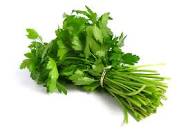
• Reduce cholesterol
• Treat haemorrhoids and other vein disorders
Coriander leaves contain natural antihistamines and are therefore effective in the treatment of hay fever and other allergic reactions. Coriander is also considered to be anti- inflammatory, anti-bacterial and anti-oxidant and may also protect against urinary tract infections (UTI). When buying coriander be very careful not to confuse it with flat leaf parsley. Coriander leaves have a more earthy smell.
In some places coriander seeds are used as a cure for insomnia and anxiety because of their sedative effects and the powdered form is used in the treatment of depression, panic attacks and other psychological and emotional disorders. It is also known to promote good memory.
Cumin
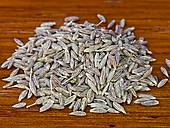 Cumin has been used as a spice since antiquity and is a member of the parsley family. It is rich in iron and helps with the absorption of nutrients into the system. Like ginger and peppermint it is good for the digestive system and can also help with flatulence, diarrhea, nausea, morning sickness and is also a general tonic and increases heat in the body making metabolism more efficient. It is rich in iron and helps boost the power of the liver to detoxify the body. It has a beneficial effect on the kidneys and liver and also boosts the immune system. Black cumin seeds help to treat asthma and arthritis.
Cumin has been used as a spice since antiquity and is a member of the parsley family. It is rich in iron and helps with the absorption of nutrients into the system. Like ginger and peppermint it is good for the digestive system and can also help with flatulence, diarrhea, nausea, morning sickness and is also a general tonic and increases heat in the body making metabolism more efficient. It is rich in iron and helps boost the power of the liver to detoxify the body. It has a beneficial effect on the kidneys and liver and also boosts the immune system. Black cumin seeds help to treat asthma and arthritis.
Fennel
Fennel originated in the Mediterranean but is now known and used worldwide. The seeds are the part of the plant that are used and can be taken as teas, lozenges, tinctures, capsules and powder. Fennel is normally used for wind, bloating, coughs, catarrh and mild digestive spasms. It is also a powerful source of synthetic oestrogen and should not be taken by pregnant women. If you are using fennel you should have a break from it after about six weeks.
Fenugreek
Fenugreek is a very aromatic herb which is widely used in traditional cuisines and Indian traditional medicine. It is said to have anti-diabetic action and can lower cholesterol. Research has shown that people with type 2 diabetes benefitted from a reduction in blood glucose levels when fenugreek was added to their diet. Fenugreek also appeared to lower triglycerides (a bad type of fat) and raise HDL “good” cholesterol. Fenugreek may interact with medication being taken to lower glucose levels. Half a teaspoon a day with half a teaspoon of cinnamon taken in tea, beverages or soups could benefit those with type 2 diabetes.
Garlic
 Garlic is a very popular culinary herb worldwide. It contains a very powerful antioxidant, allicin. Allicin prevents cells from taking up cholesterol and reduces cholesterol production in the liver. Sulphur compounds formed from the breakdown of allicin react with red blood cells to produce a substance which relaxes blood vessels and helps keep blood flowing freely, thus improving circulation and reducing the risk of heart disease and stroke. Garlic also has anti-viral, anti-bacterial and antiseptic properties. Evidence also suggests that garlic can stop the growth of colonic cancer cells.
Garlic is a very popular culinary herb worldwide. It contains a very powerful antioxidant, allicin. Allicin prevents cells from taking up cholesterol and reduces cholesterol production in the liver. Sulphur compounds formed from the breakdown of allicin react with red blood cells to produce a substance which relaxes blood vessels and helps keep blood flowing freely, thus improving circulation and reducing the risk of heart disease and stroke. Garlic also has anti-viral, anti-bacterial and antiseptic properties. Evidence also suggests that garlic can stop the growth of colonic cancer cells.
Garlic is better when eaten raw but the left over odour can be off putting. There are three herbs that can actually cancel out garlic breath. Firstly, the much underrated parsley but I do not suppose it would be convenient to carry a sprig with you wherever you go. Secondly, the humble clove, which is one of the most powerful antioxidants. Cloves also freshen your breath and of course we are all familiar with oil and cinnamon.
Ginger
Ginger is a very old herb and a cousin of turmeric with which it shares many of its health benefits. If you stand fresh turmeric and ginger roots side by side it is only by scratching the skin and seeing the colour of the underlying flesh that you can tell the difference.
G inger raises body heat, is a blood thinner and treats a wide range of health problems from nausea to arthritis. Ginger combines well with other herbs and like turmeric, its cousin, is said to have anti-inflammatory properties. Ginger tea strengthens the lungs and kidneys and helps with the proper digestion of food. Acid reflux can be overcome by drinking warm ginger tea after a meal. Ginger plays an important role in eastern and south eastern Asian cuisine.
inger raises body heat, is a blood thinner and treats a wide range of health problems from nausea to arthritis. Ginger combines well with other herbs and like turmeric, its cousin, is said to have anti-inflammatory properties. Ginger tea strengthens the lungs and kidneys and helps with the proper digestion of food. Acid reflux can be overcome by drinking warm ginger tea after a meal. Ginger plays an important role in eastern and south eastern Asian cuisine.
Folk medicine says that fresh ginger rubbed on the affected area is good for vitiligo
Nutmeg/Mace
Nutmeg has been cultivated for thousands of years in South East Asia. Apart from its culinary use nutmeg has many health and medicinal properties. It has been used to relieve anxiety and depression and has been shown to be particularly good as an anti-inflammatory and helps with abdominal pain, aching joints, muscle pain and arthritis, when the oil is used externally. When used internally, nutmeg removes excess gas from the stomach, easing bloating, constipation, flatulence, and diarrhea. It has also been used for gum problems toothache and bad breath and is said to lower blood pressure and help with male infertility and impotence. Nutmeg has very powerful antioxidant, anti-fungal and carminative properties and is said to be able to remove toxins from the liver and kidneys.
Mace is the outer part of the nutmeg and has similar benefits to the nutmeg itself. It is used in cooking to spice up foods and add colour.

